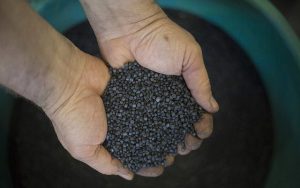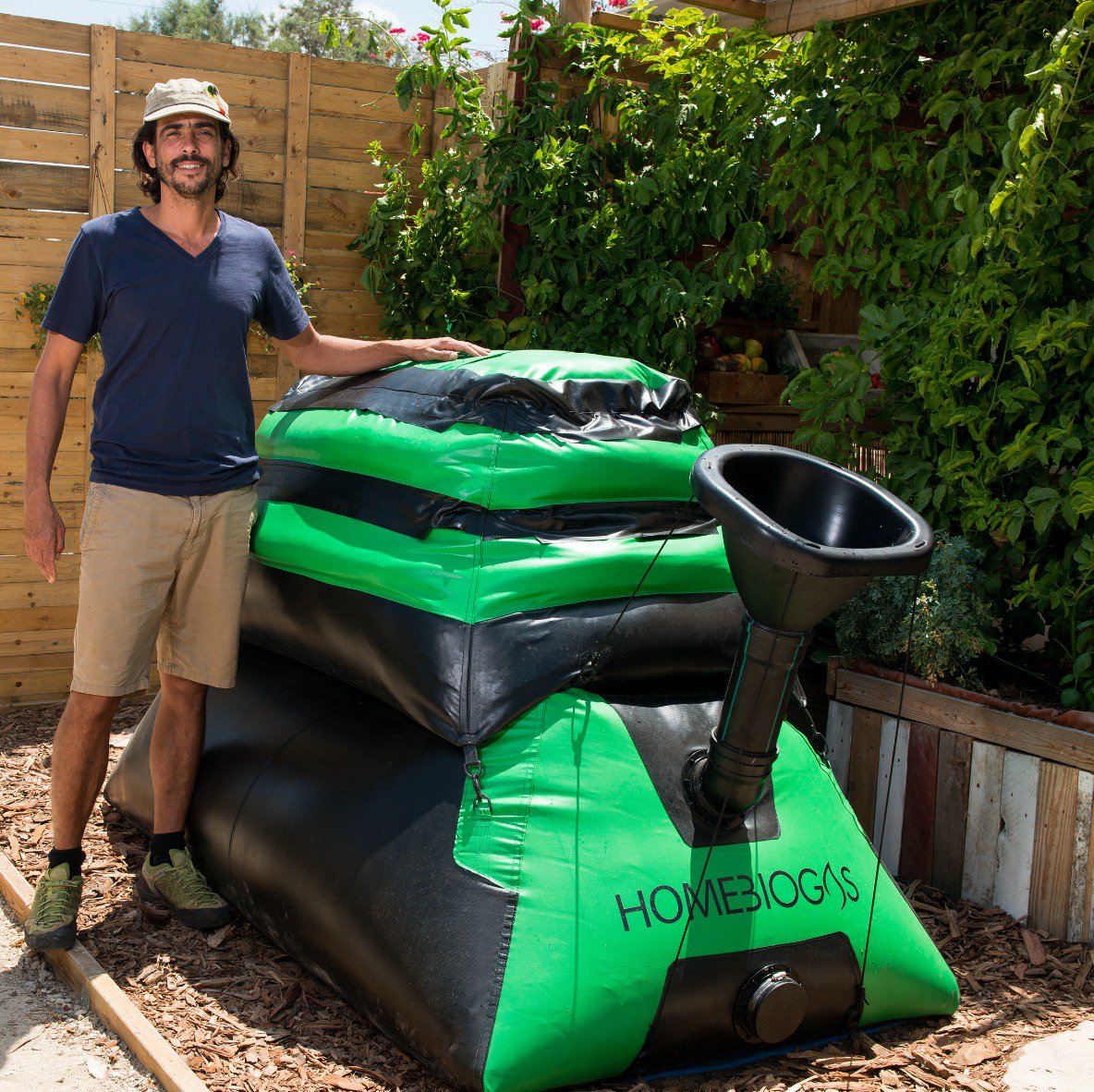Responsible Consumption and Production


SDG 12 -Waste not, want not. HomeBiogas
The potential for renewable energy is all around us, even the rubbish we just disposed of, it’s right there! Three friends born and raised in Israel are uniting modern day science and our daily living cycles to ensure responsible consumption and recycling as laid out in the Sustainable Development Goals.
Oshik Efrati tells the story to gadernnerd of, how when travelling in India, his soon to be partner called Oshik when he learnt of the underground biogas systems there. These large underground systems process food, animal and human waste into biogas using chemicals which turns what would otherwise be a costly and environmentally harmful waste into renewable energy. However, this process can take up to three weeks and is expensive. In 2012, Oshkil along with Yair Teller and Erez Lanzer formed ‘HomeBiogas,’ a portable and cost-effective biogas solution.
Essentially a large plastic tent, the HomeBiogas functions as a recyclable waste solution, right in your backyard. The user can take their recyclable rubbish such as leftovers from last night’s dinner, throw it into the HomeBiogas which then breaks down and digests the organic material producing biogas and fertilizer. Once this process has been completed, the gas can filter straight though to their gas stove which allows you to cook up to three hours a day
The initial HomeBiogas prototype piloted in 2014 and 2015 in low socioeconomic status communities in Israel and only a year later attracted customers from over 40 countries. With a very successful kickstarter campaign they were able to take their R&D to the next level soon developing the HomeBiogas 2.0. This new solution has a larger capacity for treating waste and making biogas. Today it features in over 90 countries around the world. The success of the HomeBiogas is crucial as it is helping the world achieve the sustainable management of natural resources and substantially reduce waste generation through proper recycling as set out in Goal 12 of the SDGs.
Oshik explains that today there are around 3 billion people using open fires to cook, a result of one hour of this cooking is the equivalent of smoke 400 cigarettes! The winners of the 2018 Energy Globe Award for Israel, they have been spreading their innovation across the world. In 2017, HomeBiogas set up its second pilot project in Kigali, the capital of Rwanda. A city where the most common form of fuel for cooking is charcoal or wood, with waste being distributed to large landfills, a commonly dangerous and unhealthy waste management solution. Avi, the HomeBiogas Rwanda delegate explains, “I see people who don’t have any other alternative, they need this (HomeBiogas) to survive. They are so happy about it; it was very exciting to see.”
HomeBiogas extended their innovation to confront the sanitation issue in developing countries as well. Using their same innovative tech, they designed a toilet which disposes of human waste. The off-grid solution doesn’t require pressurized water and can work in any setting without compromising aesthetics, particularly useful for the developed countries.
Their innovations have reached over a million people, diverted 222,600 tons of waste and saved 1.750ha forest trees. The HomeBiogas can save up to 40,000 litres of water a year and by 2022 they expect to be able to reduce co2 emissions by 3 million tons! With their continued success, HomeBiogas are moving the UNs goals of sustainable consumption and waste management from goals into reality.
Related articles


SDG12- TIPA – Decomposing bad plastic habits with fully compostable ones
Responsible Consumption and Production “Imagine…if you could treat flexible food packaging like an orange peel…like organic waste, a natural resource.” What will become a historical


SDG 12 – Collaborating for Change: The Role of Local Leadership in Climate Action
Responsible Consumption and Production Nowadays trash is inevitable. Each year our planet becomes home to more than two billion tons of trash, and in Israel


SDG 12- Spinning Garbage into Gold – the Startup Nation Does It Again
Responsible Consumption and Production SDG 12 -Spinning Garbage into Gold – the Startup Nation Does It Again Turn household, landfill trash into reusable plastic? Impossible!



















